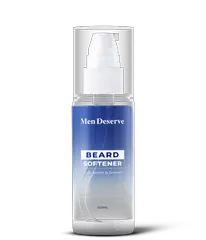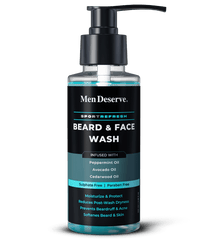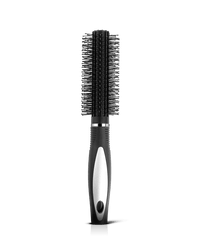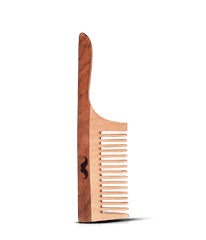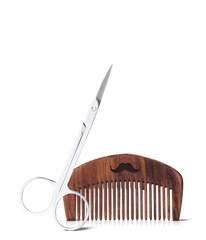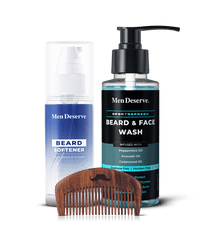Oral Hygiene for Men
Oral hygiene for men isn't just about having a Hollywood smile or impressing a date with minty fresh breath; it’s your mouth’s daily battle against plaque, bad decisions and that third cup of coffee you probably didn’t need.
Yet, most guys are unknowingly sabotaging their oral hygiene with habits that would make a dentist cry into their fluoride rinse. Whether you’re Googling “how to enhance my oral hygiene” at 1 AM or wondering “how to maintain perfect oral hygiene” after spotting your first gum bleed, it’s time to level up.
In this guide, we’re tackling 5 common (and dangerous) Issues in men's oral hygiene, along with 6 bold, no nonsense solutions to help you turn poor oral hygiene into good oral hygiene because knowing how to practise good oral hygiene isn’t just smart, it’s essential.
Get ready to upgrade your oral hygiene routine and say goodbye to the silent stink of bad oral hygiene; your gums, your grin and your future self will thank you.
Why Oral Hygiene for Men is Important?
While everyone needs to maintain good oral hygiene; oral hygiene for men comes with specific challenges and risks that make it even more critical.
1. Career and Confidence
First impressions matter. A clean, confident smile can influence job interviews, dates and social interactions. Bad breath or discolored teeth can send the wrong message, even if you're otherwise well groomed. Prioritizing oral hygiene for men ensures your smile reflects the best version of yourself.
2. Higher Risk for Gum Disease
According to the American Dental Association, men are more likely than women to develop periodontal (gum) disease. Factors include lifestyle habits like smoking and alcohol use, less frequent dental visits and higher stress levels. This makes oral hygiene for men a key preventative measure.
3. Linked to Systemic Health Issues
Poor oral hygiene is linked to heart disease, erectile dysfunction, diabetes and even Alzheimer’s. For men; who are statistically more prone to these conditions oral hygiene for men is more than just dental care; it’s a direct line to better overall health.
Common Oral Health Issues in Men
1. Gum Disease

Men are more likely to develop periodontal disease due to factors like higher rates of tobacco use and less frequent dental visits. Oral hygiene for men should prioritize gum care, as signs like bleeding gums, bad breath and tooth sensitivity are often early warnings of more serious issues.
2. Tooth Decay

High sugar diets, frequent snacking and poor brushing habits contribute to cavities and tooth loss. A consistent oral hygiene for men routine that includes brushing, flossing and mindful eating is essential to prevent decay.
3. Oral Cancer

Men are twice as likely as women to develop oral cancer, especially those who use tobacco or alcohol. Oral hygiene for men should include regular dental check ups and self monitoring for unusual sores or lesions to ensure early detection.
4. Dry Mouth

Men who take medications for blood pressure, anxiety or other conditions may experience dry mouth, which increases the risk of decay and infections. Staying hydrated and adjusting your oral hygiene for men routine with mouthwashes designed for dry mouth can help combat this issue.
5. Bad Breath

Poor oral hygiene, certain foods, smoking and dehydration can lead to chronic bad breath, which affects both confidence and relationships. A targeted oral hygiene for men approach including tongue cleaning and antibacterial rinses can significantly reduce halitosis.
Routine for Oral Hygiene in Men
A consistent and effective oral hygiene for men routine is one of the simplest yet most impactful ways for men to maintain not just a great smile but also long term overall health. While many men may brush occasionally and visit the dentist when something hurts, optimal oral health requires daily attention and care. Here's a detailed breakdown of how to build and maintain a powerful, sustainable oral hygiene for men routine.
1. Brush Twice Daily

Brushing your teeth is your first line of defense against plaque, cavities and gum disease. Here's how to do it right:
-
Brush for two full minutes in the morning and at night. Set a timer or use a toothbrush with a built in timer to ensure consistency.
-
Use a soft bristled toothbrush to avoid damaging enamel or irritating gums. Replace your toothbrush or electric brush head every 3 months or sooner if the bristles are frayed.
-
Choose a fluoride toothpaste, which helps strengthen enamel and prevent tooth decay.
-
Use the proper technique: Brush in gentle, circular motions, holding the brush at a 45 degree angle to the gumline. Cover all surfaces; front, back and chewing sides of your teeth.
2. Floss Daily

Flossing is often neglected but it’s absolutely essential; especially for men who tend to eat more protein, red meat or snack between meals.
-
Floss once a day, preferably before bed. This helps remove plaque and food debris between your teeth and under your gums where your toothbrush can’t reach.
-
Use waxed floss, dental tape or floss picks whatever makes it easier for you to stay consistent.
-
Flossing helps prevent gum inflammation, bleeding, bad breath and long term tooth loss.
3. Use Mouthwash

Mouthwash is more than just a minty afterthought; it plays a powerful role in killing bacteria, protecting enamel and keeping your breath fresh.
-
Choose a therapeutic mouthwash with fluoride or antibacterial properties (such as chlorhexidine or cetylpyridinium chloride) for extra protection.
-
Swish for 30 seconds to 1 minute after brushing and flossing or after meals if you’re unable to brush.
-
For those prone to dry mouth, especially men who take certain medications (like antihistamines or blood pressure meds), opt for alcohol free formulas to avoid irritation.
4. Regular Dental Checkups

Even with perfect daily care, you still need a professional to monitor your oral health and clean areas you might miss.
-
Visit your dentist every 6 months for a cleaning and exam. These visits help catch problems early before they become painful or expensive.
-
Men with high risk behaviors (such as smoking, heavy alcohol consumption or poor dietary habits) or with chronic health conditions (like diabetes or cardiovascular disease) should ask their dentist if more frequent visits are needed.
-
Don’t wait for pain to act. Most dental problems (like cavities and gum disease) are silent in the early stages.
5. Clean Your Tongue

Your tongue can harbor a surprising amount of bacteria that contribute to bad breath (halitosis) and even plaque buildup.
-
Use a tongue scraper (available in most pharmacies) every morning after brushing, starting at the back of the tongue and pulling forward.
-
Alternatively, gently brush your tongue with your toothbrush but a scraper tends to be more effective and less gag inducing.
-
This simple step improves breath, taste sensation and reduces overall bacterial load in your mouth.
6. Hydrate and Eat Well

What you put in your body affects your oral health just as much as your brushing habits.
-
Drink plenty of water throughout the day. It helps wash away food particles, neutralize acids and supports saliva production; a key player in defending against cavities.
-
Limit sugary drinks and snacks, which fuel cavity causing bacteria. Sports drinks, soda and even frequent coffee with sugar are major culprits.
-
Eat a diet rich in leafy greens, lean proteins, dairy, whole grains and crunchy fruits like apples or carrots. These foods stimulate saliva and physically clean your teeth.
-
Avoid acidic foods and drinks (citrus, soda, vinegar based items) that can erode enamel over time. If you consume them, rinse your mouth with water afterward.
How Oral Hygiene for Men Affects the Entire Body?
One of the biggest misconceptions is that oral health is separate from overall health. In reality, your mouth is a mirror to the rest of your body. Inflammation in the gums, for example, can trigger or worsen inflammation in other systems of the body. Let’s find out how oral hygiene for men influences major aspects of male health:
1. Heart Disease
Men are more prone to cardiovascular conditions than women. Studies have shown that the same bacteria responsible for gum disease can enter the bloodstream and contribute to plaque buildup in arteries, leading to heart disease and strokes. Bleeding gums aren't just a sign of poor brushing; they might be early signs of systemic inflammation.
2. Diabetes
Men with diabetes are at greater risk of gum disease and gum disease can also make it harder to control blood sugar. It’s a two way street that makes oral hygiene even more vital for diabetic men.
3. Erectile Dysfunction
Chronic gum disease has been linked to erectile dysfunction. The theory is that the bacteria and inflammation associated with gum disease may restrict blood flow; impacting more than just your gums.
4. Fertility
Poor oral health can even affect sperm quality. Inflammatory conditions and infections in the mouth may negatively impact a man’s reproductive health and hormone balance.
Special Considerations for Men
1. Beard and Mustache Maintenance

If you sport facial hair, make sure it’s not trapping food or bacteria near your mouth. Wash your beard regularly and trim any overgrowth near your lips. This is an often overlooked aspect of oral hygiene for men, as unclean facial hair can contribute to bad breath and bacterial buildup around the mouth.
2. Workout Habits

Many men who work out heavily also consume protein shakes and pre workouts loaded with sugar or acids. These can stick to your teeth and increase the risk of decay. Rinse your mouth or brush afterward to protect your enamel; an important step in maintaining effective oral hygiene for men.
Oral Hygiene and the Modern Man’s Lifestyle
1. Vaping and Smoking

Even though vaping is marketed as “safer,” it still contributes to dry mouth, gum irritation and bacterial imbalances. Tobacco in any form is a major risk factor for oral cancer, gum disease and staining. If you can’t quit, brush after each use and drink water regularly to reduce dry mouth.
2. Stress and Grinding

Men under stress often grind their teeth (bruxism), especially at night. This wears down enamel and can cause chronic jaw pain. Use a night guard and practice stress management techniques like exercise and deep breathing.
3. Diet Trends (e.g., Keto, High Protein)

High protein, low carb diets can cause “keto breath,” a metallic or fruity odor from acetone buildup. Also, acidic pre workouts and protein bars loaded with sweeteners can damage enamel. Rinse with water after supplements or protein shakes and brush 30 minutes later.
Final Thoughts
So there you have it; oral hygiene for men isn’t just about flashing a bright smile or impressing your dentist twice a year. It’s about dodging the sneaky sabotage of bad oral hygiene, kicking poor oral hygiene habits to the curb and strutting confidently into the world with a mouth as fresh as your attitude.
Remember, oral hygiene isn’t a boring chore; it’s a bold lifestyle move. With the right oral hygiene routine, you’re not just polishing your teeth, you're sharpening your whole game. From preventing disease to boosting confidence, good oral hygiene is your secret weapon.
So let’s raise a toothbrush to better oral health hygiene because men's oral hygiene deserves more than minty mouthwash and wishful thinking.
FAQs: Oral Hygiene for Men
1. What is normal oral hygiene?
Normal oral hygiene involves daily practices that keep your mouth clean and healthy. This includes brushing your teeth twice a day with fluoride toothpaste, flossing once a day, cleaning your tongue and visiting the dentist regularly. Oral hygiene for men should also consider lifestyle habits like diet, smoking and stress, as these can directly impact oral health.
2. What is the 3 3 3 rule for brushing teeth?
The 3 3 3 rule encourages brushing your teeth 3 times a day, for 3 minutes each time and waiting 30 minutes after meals before brushing. While it’s more intensive than usual recommendations, it’s a helpful guideline for men looking to level up their oral hygiene for men and prevent plaque buildup, gum disease and bad breath.
3. What do Koreans use for their teeth?
Koreans often use soft bristled toothbrushes, fluoride toothpaste and traditional remedies like saltwater rinses. They also value frequent dental visits and meticulous oral care. For men adopting global best practices, integrating some of these habits into your oral hygiene for men routine can offer an edge in maintaining clean, healthy teeth.
4. How to avoid bad breath?
To avoid bad breath, practice consistent oral hygiene for men: brush twice daily, floss, clean your tongue and use antibacterial mouthwash. Stay hydrated, avoid tobacco and excessive alcohol and limit pungent foods like garlic and onions. Regular dental checkups are also key to ruling out underlying issues like gum disease.
5. How to repair gums naturally?
To support natural gum healing, maintain excellent oral hygiene for men by brushing gently with a soft bristled toothbrush, flossing daily and rinsing with warm saltwater. Eating a balanced diet rich in vitamins C and D, quitting smoking and reducing stress also promote healthier gums over time.
6. How to clean gums?
Cleaning gums starts with brushing your teeth at the gumline using gentle, circular motions and a soft bristled toothbrush. Flossing is critical, as it removes plaque from under the gumline. Men should incorporate this into their oral hygiene for men routine to prevent gum inflammation and disease.
7. How to turn teeth white?
For whiter teeth, maintain oral hygiene for men with regular brushing and flossing and reduce staining foods like coffee, tea and wine. Whitening toothpaste, at home whitening kits or professional treatments from your dentist can also help. Smoking cessation is a major bonus for both whitening and oral health.
8. How to remove teeth plaque?
To remove plaque, brush at least twice daily with fluoride toothpaste, floss to reach between teeth and use an antibacterial mouthwash. Oral hygiene for men should also include regular dental cleanings, which remove hardened plaque (tartar) that brushing can’t tackle.
9. What kills bad breath quickly?
To kill bad breath fast, rinse with an antibacterial mouthwash, chew sugar free gum and drink water. Brushing your teeth and cleaning your tongue can also provide instant freshness. Making these steps part of your daily oral hygiene for men strategy will help keep bad breath at bay long term.
10. How do I clean my tongue?
Use a tongue scraper or the back of your toothbrush to gently scrape from the back of the tongue to the front. Do this daily after brushing. Tongue cleaning is a small but powerful step in oral hygiene for men, reducing bacteria that cause bad breath and plaque.
11. How to brush your teeth correctly?
Brush at a 45 degree angle to your gums using small, circular motions. Cover all surfaces: outer, inner and chewing. Brush for at least 2 minutes twice a day and don’t forget the tongue. Correct technique is a cornerstone of effective oral hygiene for men, ensuring long term dental health.







